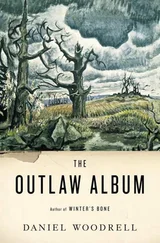Daniel Alarcon - War by Candlelight - Stories
Здесь есть возможность читать онлайн «Daniel Alarcon - War by Candlelight - Stories» весь текст электронной книги совершенно бесплатно (целиком полную версию без сокращений). В некоторых случаях можно слушать аудио, скачать через торрент в формате fb2 и присутствует краткое содержание. Год выпуска: 2006, Издательство: Harper Perennial, Жанр: Современная проза, на английском языке. Описание произведения, (предисловие) а так же отзывы посетителей доступны на портале библиотеки ЛибКат.
- Название:War by Candlelight: Stories
- Автор:
- Издательство:Harper Perennial
- Жанр:
- Год:2006
- ISBN:нет данных
- Рейтинг книги:4 / 5. Голосов: 1
-
Избранное:Добавить в избранное
- Отзывы:
-
Ваша оценка:
- 80
- 1
- 2
- 3
- 4
- 5
War by Candlelight: Stories: краткое содержание, описание и аннотация
Предлагаем к чтению аннотацию, описание, краткое содержание или предисловие (зависит от того, что написал сам автор книги «War by Candlelight: Stories»). Если вы не нашли необходимую информацию о книге — напишите в комментариях, мы постараемся отыскать её.
is an exquisite collection of stories that carry the reader from Third World urban centers to the fault lines that divide nations and people — a devastating portrait of a world in flux — and Daniel Alarcón is an extraordinary new voice in literary fiction, one you will not soon forget.
War by Candlelight: Stories — читать онлайн бесплатно полную книгу (весь текст) целиком
Ниже представлен текст книги, разбитый по страницам. Система сохранения места последней прочитанной страницы, позволяет с удобством читать онлайн бесплатно книгу «War by Candlelight: Stories», без необходимости каждый раз заново искать на чём Вы остановились. Поставьте закладку, и сможете в любой момент перейти на страницу, на которой закончили чтение.
Интервал:
Закладка:
I knew the way, of course, to my Saturday home, where I once kept my mother company and did my homework on the garden terrace. The space my father and I had violated, nearly sacrificing her livelihood. But she had always been safe there. And, worse, I had too. They’d welcomed me into their looted house, consoled me when I cried. You’re too old for that, Chino. Look, they didn’t steal the books. The old engineer with his generous heart, trying to make me feel better.
I trailed a half block behind her now, an expert in my clumsy green shoes. She walked along the sidewalk and I tracked her, marching down the very center of an empty street. “Ma!” I shouted. “Ma!” She half-turned, and then sped up at the sight of me. I rushed to keep pace with her. “Ma!” I shouted again. “Ma, it’s Oscar! It’s Chino!”
She stopped beneath a flowering tree and stepped out into the street. “Hijo?” she said. “Is that you?”
I hadn’t seen her since the velorio . I had left her to bury the old man without me. She had held his hand and watched him die. She had put him in the earth and covered him.
“It’s me, Ma.”
“Chino!” she cried. “You scared me!”
“I’m sorry, Ma.”
“Your nose, Chino?”
I pulled off my red nose, let it drop to the ground.
“And your shoes? What’s all this?”
I stepped out of the clown shoes and kicked them toward the sidewalk. “I’m writing a story, Ma. For the paper.”
She nodded, not understanding.
“I’m sorry,” I repeated.
“Where have you been, Chino?”
“Here and there,” I said. I took off my wig. “I’m here now.”
She took me in her arms and stroked my hair. She kissed my forehead and wiped the paint from my cheeks. “Are you all right?”
“I’ve been to Carmela’s, but I didn’t knock.”
“You should have,” she said. “Will you?”
“I don’t know,” I said. “Did he ask about me?”
It was a travesty, my wanting to know, but I did. She held me tighter. My face paint was running, coming off in white streaks on the sleeve of my suit. “He missed you, Chino,” she said.
I felt the warm, salty wet of her cheek against mine. It felt good to be held.
“I missed you too,” my mother said.
“I won’t leave you,” I cried. But a shiver passed over me. I knew in my heart that the clown was lying.
third avenue suicide
They’d been living in the apartment for ten days when David was first asked to disappear. This was the arrangement, what they’d agreed upon, and he would do so without complaint. His things were put away, hidden in the corners of the closet, or under the bed, or in the bottom drawer where Reena’s mother was unlikely to look. His razor, his boxer shorts, his guitar, his cameras. “Your man things,” Reena said, joking. He liked the way she said it. David kissed her and walked out of the apartment and into the street. The August heat had broken, and the breezy afternoon intimated the coming fall. I’m a good boyfriend, David told himself. It was no sacrifice at all. He loved her. He sat on the curb across the street from their building, smoking cigarettes and watching for Mrs. Shah.
He’d seen Reena’s mother in pictures many times and once in person at Reena’s dance performance the previous spring. Mrs. Shah didn’t know Reena had a boyfriend. She didn’t know they’d been dating for two years, or that they’d just moved in together. And she could not know. These were the rules of the relationship, Reena said. When I’m ready, I’ll tell her.
Her father had not known either. He’d passed away in April, not knowing.
When you’re ready, David said, nodding. He wanted to be patient. Not to pressure her.
Now he waited and wondered exactly how long he would have to be outdoors. A breeze carried some candy wrappers toward the park at the top of the hill. Some older men stood on the corner, thumbing through a newspaper they’d laid out on the hood of a parked car. One of them nodded at David. A game of baseball was under way in the middle of the street. A spindly-legged kid swung wildly at a tennis ball, launching fly balls high into the air.
David bought a paper at the bodega and read the sports. He smoked two cigarettes. The men dispersed and regrouped on another corner, caressing beer bottles in brown paper bags. The call from the Yankees game spilled out of a car stereo. David had forgotten to watch for Reena’s mother. He’d missed her emerging from the train station, or toddling up the hill. Instead, he read the paper cover to cover, news that bored him thoroughly, as an hour passed, and most of another. He walked around the block and sat down again. The afternoon edged toward dusk, and suddenly there was Reena in front of him, grinning. “She’s gone,” Reena said. “Are you coming up?”
“What’d she say?” David asked.
“Nothing really.”
David checked at his watch. “In two hours?”
“Well…”
“Did she like the place?”
“She said it was dark.”
He nodded. It was dark. “Foggy,” he said, shaking his head. “We’ll go crazy in there.” With arching eyebrows, David signified crazy. Reena laughed.
The day they rented the apartment had been sunny and clear, a washed-out and white afternoon. It fooled them: the tiny space seemed, that morning, endearingly intimate and warm. They’d spent more than a week unpacking, cleaning, and painting; not once had it approached the bright golden light of that first day. “Indifferent to light,” was how Reena described the apartment. Outside, the quality of the sun changed: shadows glancing at various angles, transforming the city as the day grew older. But inside their space, the walls stayed a dull white and nothing glowed and nothing shone. A uniform blue evoked midwinter. It was, they decided, the city’s darkest nonbasement apartment.
Now David held his hands out. Reena pulled him up. “She didn’t even look in the closets. Or under the bed. You’re off the hook.” She bit her lip and tucked a loose strand of black hair behind her ear. “She did ask me if I was seeing anyone.”
“And? What’d you tell her?”
“That me and my hoodrat boyfriend make love every night on the fire escape.”
Reena touched his cheek, and David felt the muscles of his face contract into a smile. Over her shoulder, he could see the older men watching them.
“Underneath the stars. How romantic.”
“Without protection,” she whispered.
“Mongrel babies.”
“Half-breeds.
“The best kind,” he said. Her breath tickled his ear. He buried his head between her neck and shoulder, felt her tighten when he bit her earlobe. He kissed her neck until Reena laughed.
“She told me there are Web sites for Indians now,” Reena said. “Web sites? Can you imagine?”
“How primitive modern.” David frowned and pulled away. “She’s not giving up then.”
“Nope.”
He shook his head and realized he was expecting something. It had been two hours. He felt the need to be thanked. They were quiet for a moment. On the sidewalk, the breeze turned the newspaper’s crumpled pages.
“She brought us fruit,” Reena said finally.
“Ooohh.”
“Don’t be an ass.” She twirled a lock of black hair around her finger and then took his hand.
“Do you think she’ll come around much?”
“Probably not.” Reena kissed him. They crossed the street toward their apartment.
But she did come around, once the next week, and twice the week after that. David soon understood exactly what was in store. Reena lived in the apartment, he visited there. All the bills were in her name. David had bought a cell phone, since he was prohibited from answering the land line. It was the number Reena’s mother called. The first weeks of September, there was still little to be done at work, and so often he was home early, only to be displaced by Reena’s mother. He got to know the neighborhood during these periods of exile. He walked up to Riverside Park, where the Mexicans played volleyball beneath the leafy shade of the oak trees. He had coffee at La Floridita and pretended to play Lotto with those stubby yellow pencils. He window-shopped on 125th, looked disinterestedly at bright Timberland boots engineered like SUVs, and baby blue FUBU jogging suits selling for two bills. But always before he left, David waited for Mrs. Shah and tried to intercept her. He’d seen Reena’s mother three times now, walking slowly up the hill from the train station, bearing gifts: a grocery bag full of apples, a duffel packed with bath towels, and once, an electric juicer, brand-new and still in the box. Afterward, when he came home and Reena showed off what her mother had brought them, David warily pointed out that these gifts, no matter how thoughtful, were not for them. They were for her. In any case, he saw Mrs. Shah before Reena did, saw her struggling up the hill with heavy bags, arms clasped around a package, and he never offered to help, though this went against every impulse he had, everything he had ever been taught. Instead he walked by, smiling generously. His idea was to pass her each and every time she came until she noticed him.
Читать дальшеИнтервал:
Закладка:
Похожие книги на «War by Candlelight: Stories»
Представляем Вашему вниманию похожие книги на «War by Candlelight: Stories» списком для выбора. Мы отобрали схожую по названию и смыслу литературу в надежде предоставить читателям больше вариантов отыскать новые, интересные, ещё непрочитанные произведения.
Обсуждение, отзывы о книге «War by Candlelight: Stories» и просто собственные мнения читателей. Оставьте ваши комментарии, напишите, что Вы думаете о произведении, его смысле или главных героях. Укажите что конкретно понравилось, а что нет, и почему Вы так считаете.












